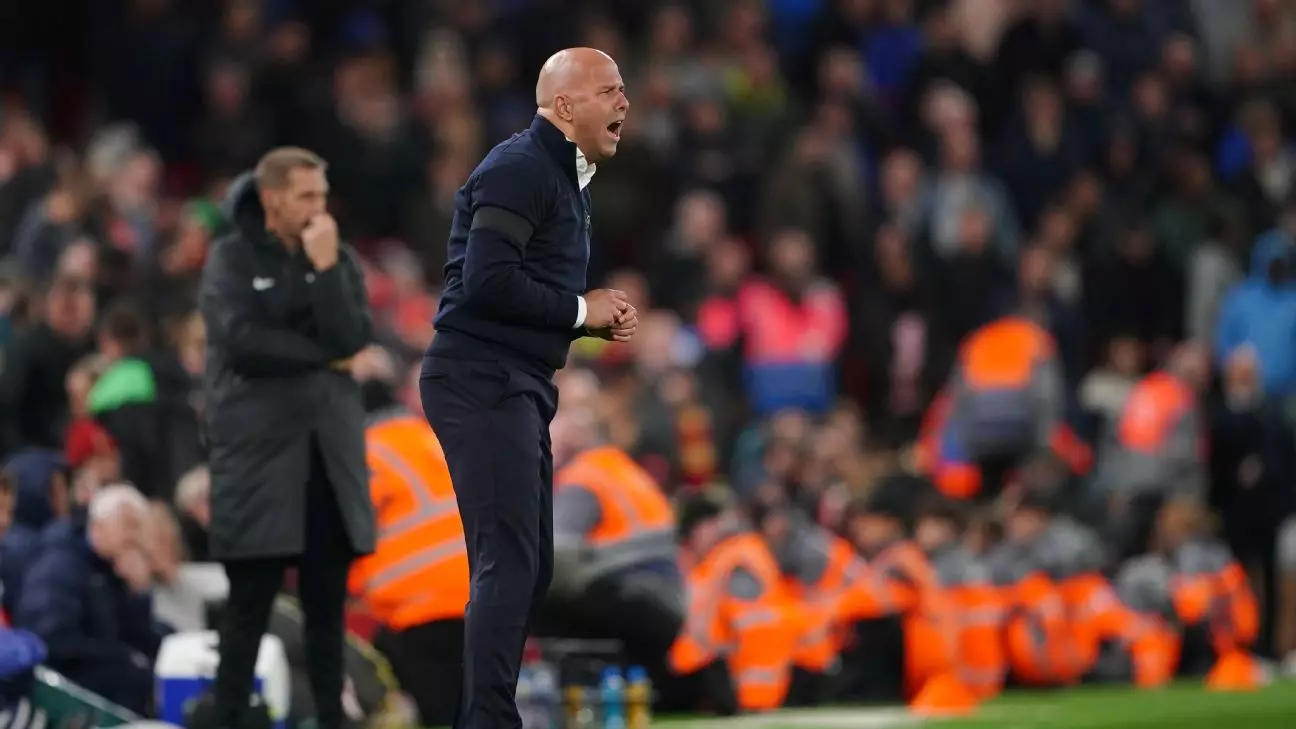In the realm of football, few fixtures ignite passion and fervor quite like a match between Liverpool and Chelsea. Recently, the clash at Anfield revealed not only the intense rivalry between the clubs but also shed light on the often contentious role of referees in high-pressure environments. Arne Slot, the ex-Feyenoord manager, offered insightful commentary following Liverpool’s 2-1 win that brings to the forefront the sometimes fraught relationship between the officiating team and the electrifying atmosphere generated by home supporters.
Referee’s Performance Under Pressure
During such high-profile matches, the pressures faced by referees cannot be overstated. Slot’s remarks about referee John Brooks alluded to a notable phenomenon: the desire of officials to display their independence amidst the roaring crowd at Anfield. Brooks made several pivotal decisions throughout the match, including yellow cards and penalty calls, which became focal points for discussion. For instance, a yellow card issued to Tosin Adarabioyo for a tactical foul on Diogo Jota early in the game was one of the initial VAR checks that set the tone for the rest of the officiating.
The first half saw a crucial moment when Mohamed Salah scored a penalty following a foul on Curtis Jones. However, claims for another penalty just before half-time were dismissed upon Brooks’ review, prompting Slot to express dissatisfaction with how the officiating was influenced by the crowd’s pressure. It raises an important point of contention: does the referee’s independence truly come into play during such emotionally charged matches?
The introduction of Video Assistant Referee (VAR) technology has promised greater accuracy in officiating, yet its implementation continues to evoke mixed reactions. In this encounter, several instances tested its efficacy, particularly when Nicolas Jackson’s equalizer was initially deemed offside but subsequently validated through VAR review. This instance highlighted the technology’s role in mitigating human error while also amplifying the tension surrounding pivotal decisions that could alter the game’s dynamics.
The incident encapsulates the dual-edged nature of VAR; while it has the capability to overturn mistakes, it also generates delays and frustrations, particularly for players and fans alike. Slot’s reflections on these decisions underscore a broader narrative within football about the balance between technology and the subjective nature of officiating in light of the numerous variables at play in real-time.
No discussion about Liverpool’s home matches would be complete without addressing the unique advantage offered by Anfield’s iconic atmosphere. Slot emphasized the mental fortitude imparted to players by the home supporters, noting their capacity to energize and motivate the team through crucial moments. However, he simultaneously cast doubt on the myth that referees favor home teams when faced with such fervor.
This juxtaposition invites further exploration:
– Does the partisan crowd exert indirect influence over referees, consciously or unconsciously shaping their decisions?
– Can players of the visiting team, such as those of Chelsea, truly overcome the barrage of emotional support from the home fans?
Slot’s statements reveal a pervasive belief that while the crowd supports players in their physical endeavors, it does not guarantee favorable officiating. The implication is a call for impartiality among officials, an expectation that remains central to discussions about sportsmanship and fairness in football.
The tension between officiating quality and the extraordinary atmosphere of matches at venues like Anfield is a microcosm of broader issues within football. Referees operate under immense scrutiny, not only from players, coaches, and fans, but also from an evolving framework of technology with VAR. As Slot aptly noted, advocating for the integrity of the sport demands a re-examination of these dynamics, ensuring that the spirit of fair play prevails, irrespective of external pressures. The Liverpool vs. Chelsea match serves as a poignant reminder of the need for ongoing dialogue about the nature of officiating, home advantage, and the influence of technology in shaping the beautiful game.

